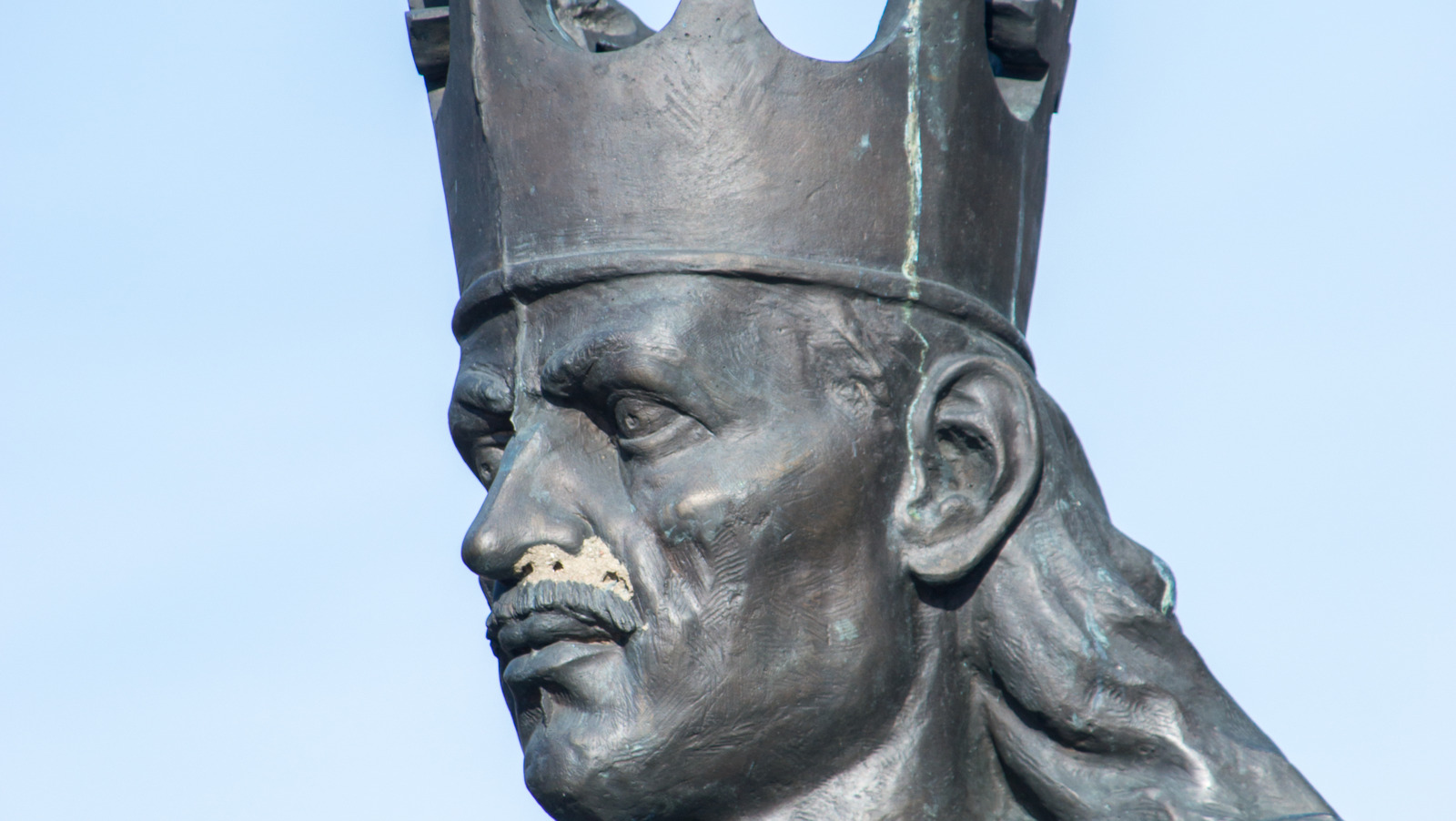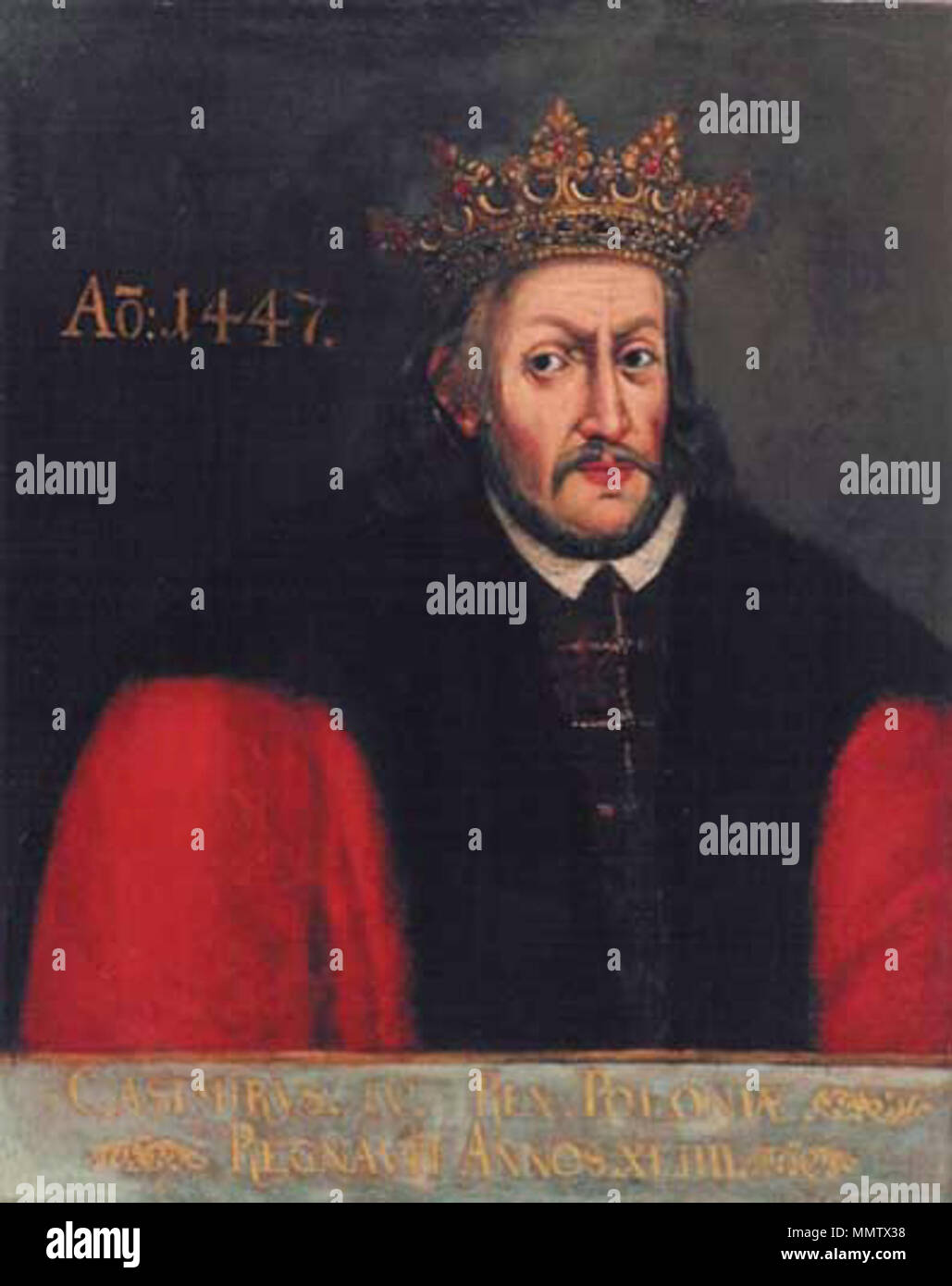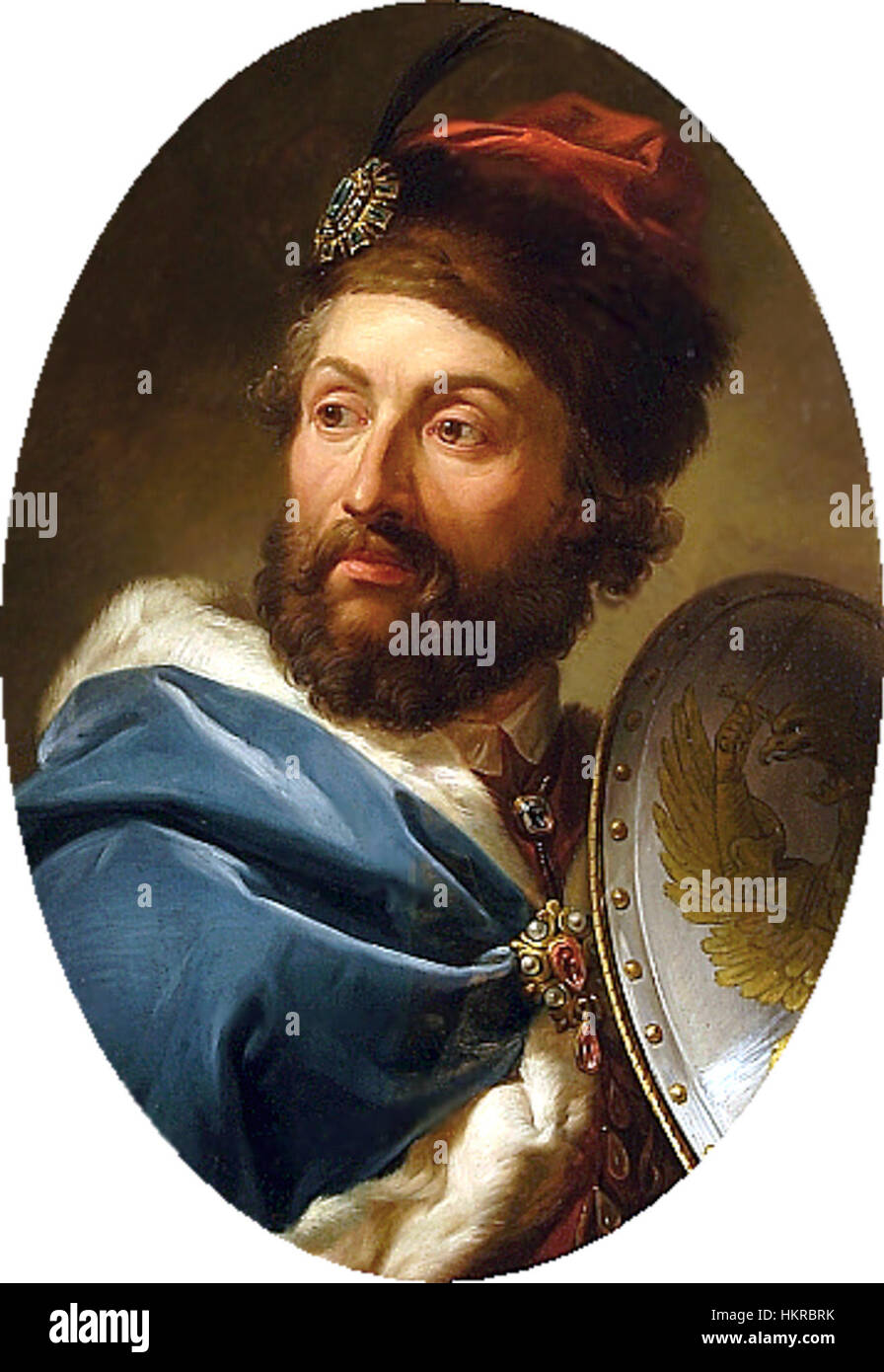Do the circumstances of one's birth truly define their destiny, or can a man rise above the whispers of doubt and shape his own legacy? Casimir Jagiellon, a figure shrouded in speculation from the moment of his arrival, defied expectations and etched his name into the annals of Polish history, proving that even a life begun under a cloud of suspicion can blossom into one of remarkable achievement.
Casimir Jagiellon, later known as Casimir IV, was born on November 30, 1427, in Krakw, Poland. He was the third and youngest son of King Wadysaw II Jagieo (also known as Jogaila) and his fourth wife, Sophia of Halshany. The circumstances surrounding his birth were far from ordinary. Sophia, his mother, was significantly younger than Wadysaw II some accounts suggest a staggering age difference of 40 to 50 years. This disparity fueled widespread speculation, with many whispering that Casimir and his siblings might not have been the king's biological children, allegations that cast a long shadow over the young prince's early life.
| Full Name | Casimir Jagiellon (Casimir IV) |
| Born | November 30, 1427, Krakw, Poland |
| Died | June 7, 1492, Grodno, Poland |
| Father | Wadysaw II Jagieo (Jogaila) |
| Mother | Sophia of Halshany |
| Spouse | Elizabeth of Habsburg |
| Children | At least 6 sons and 7 daughters, including Wadysaw II of Bohemia and Hungary, Saint Casimir, John I Albert, Alexander I, Sigismund I the Old, and Anna of Bohemia and Hungary |
| Reign | King of Poland (1447-1492), Grand Duke of Lithuania (1440-1492) |
| Achievements | Final subjugation of the Teutonic Knights (1466), consolidation of Polish power, promotion of art and culture. |
| Reference | Wikipedia - Casimir IV Jagiellon |
Despite the rumors surrounding his parentage, Casimir's upbringing was steeped in the traditions of the Polish court. He received an education befitting a prince, learning languages, history, and the arts of diplomacy and warfare. The early death of his brother, Wadysaw III, in 1444, during the Battle of Varna, dramatically altered the course of Casimir's life, thrusting him into a position of greater prominence within the Polish kingdom. While his brother's reign was relatively short, his sacrifice on the battlefield resonated deeply with the Polish people, creating a legacy of valor and national pride that Casimir would later draw upon.
- Ofilmywap Your Gateway To Movies Shows 2024 Guide
- Fry99 Your Ultimate Guide To Online Entertainment Must Read
In 1440, following the assassination of Grand Duke Sigismund of Lithuania, Casimir was dispatched to Vilnius to assume the mantle of Grand Duke. This appointment was a significant test for the young prince, as Lithuania was a volatile region with its own set of political intrigues and challenges. Casimir's ability to navigate these complexities and establish himself as a capable ruler demonstrated his burgeoning political acumen and laid the groundwork for his future role as King of Poland.
Casimir's reign as King of Poland, beginning in 1447, was marked by a period of significant growth and consolidation of power for the Polish kingdom. He was a shrewd and pragmatic ruler, adept at balancing the interests of the various factions within his court and forging alliances that strengthened Poland's position on the European stage. He understood the importance of a strong military and invested heavily in modernizing the Polish army, equipping it with the latest weaponry and training techniques. This military strength proved crucial in his most significant achievement: the final subjugation of the Teutonic Knights in 1466.
The Teutonic Knights, a powerful military order that had long posed a threat to Poland's northern borders, were finally brought to heel under Casimir's leadership. The Thirteen Years' War (1454-1466), a conflict largely focused on the control of Pomerania, culminated in the Second Peace of Thorn, a treaty that significantly weakened the Teutonic Order and returned key territories to Poland. This victory not only secured Poland's access to the Baltic Sea but also cemented Casimir's reputation as a formidable military commander and a shrewd negotiator.
- Unlock Math Easily Symbolabs Stepbystep Solutions More
- Masa49com Your Ultimate Guide Online Resource Hub More
Beyond his military and political achievements, Casimir was also a patron of the arts and sciences. He fostered a vibrant intellectual climate in Poland, encouraging the development of universities and supporting artists and scholars from across Europe. His court became a center of learning and culture, attracting some of the brightest minds of the era. This commitment to intellectual pursuits helped to solidify Poland's position as a major cultural center in Eastern Europe.
Casimir's marriage to Elizabeth of Habsburg of Austria on February 10, 1454, in Krakw, was a strategic alliance that further enhanced Poland's standing in Europe. Elizabeth, a member of one of the continent's most powerful royal families, brought with her not only prestige but also valuable political connections. The marriage proved to be a fruitful one, producing a large family of at least six sons and seven daughters. These children would go on to play significant roles in the politics of Poland and other European nations, further extending the Jagiellonian dynasty's influence.
Among Casimir's children, several distinguished themselves in their own right. Wadysaw II became King of Bohemia and Hungary, further expanding the Jagiellonian realm. Saint Casimir, known for his piety and devotion, became the patron saint of Poland and Lithuania. John I Albert, Alexander I, and Sigismund I the Old all succeeded Casimir as Kings of Poland, continuing his legacy of strong leadership and cultural patronage. Anna of Bohemia and Hungary, through her marriage, played a crucial role in the complex web of European alliances.
The legacy of Casimir Jagiellon is complex and multifaceted. He was a king who faced challenges from within and without, navigating treacherous political landscapes and leading his nation through times of war and peace. He consolidated Polish power, expanded its territories, and fostered a flourishing cultural environment. Despite the rumors surrounding his birth, he proved himself to be a capable and effective ruler, leaving an indelible mark on Polish history. His reign is remembered as a golden age for Poland, a period of growth, prosperity, and cultural achievement.
It is important to note that history is often subject to interpretation and revision. While Casimir's reign is generally viewed positively, some historians have pointed to certain aspects of his policies that were less successful or had unintended consequences. For example, his reliance on the nobility sometimes led to the weakening of royal authority, and his foreign policy decisions occasionally drew Poland into costly conflicts. However, these criticisms should be viewed in the context of the complex challenges he faced and the overall positive impact he had on the Polish kingdom.
Beyond the grand narratives of kings and battles, the everyday lives of the people under Casimir's rule were also shaped by his policies and decisions. The peasantry, the backbone of the Polish economy, benefited from increased stability and protection from foreign invaders. The merchant class thrived under his promotion of trade and commerce. The cities grew and prospered, becoming centers of economic and cultural activity. While inequalities still existed, Casimir's reign generally led to an improvement in the overall standard of living for many of his subjects.
The story of Casimir Jagiellon is not just a tale of kings and conquests; it is also a story of human ambition, resilience, and the enduring power of the human spirit. He was a man who rose above the whispers of doubt and the challenges of his time to become one of Poland's most celebrated rulers. His legacy continues to inspire generations of Poles, reminding them of the importance of strong leadership, cultural pride, and the pursuit of excellence.
Consider the words of Professor Casimir, who, despite a thick accent, manages to engage students, bridging the gap between complex material and relatable experiences. His approach mirrors Casimir Jagiellon's own ability to connect with diverse factions and navigate complex political landscapes. Professor Casimir's classroom serves as a microcosm of the world, where those eager to learn thrive, while those seeking mere grades fade into the background. This reflects the broader societal dynamic where genuine engagement and a thirst for knowledge ultimately lead to greater understanding and success.
In the vast digital landscape, finding genuine connection can be a challenge, much like navigating the intricate political landscape of 15th-century Poland. Just as Casimir Jagiellon forged alliances and navigated rivalries, we must cultivate discernment in our online interactions. Are we seeking genuine connection or fleeting validation? Are we engaging with content that enriches our understanding or simply reinforces our biases?
The allure of "cornets de glace," or ice cream cones, transcends mere confection; they symbolize universal moments of joy and shared experience. Similarly, the legacy of Casimir Jagiellon transcends the confines of history books; it represents a shared Polish identity and a collective memory of a golden age. Both serve as touchstones, reminding us of the enduring power of simple pleasures and the importance of national pride.
Let's be frank: the internet is a wild frontier. Amidst the noise, the story of Casimir Jagiellon offers a timeless lesson in leadership, resilience, and the importance of forging one's own path. It reminds us that even in the face of doubt and adversity, we have the power to shape our own destinies and leave a lasting impact on the world.
The complexities of driving in France, with its unfamiliar road signs, pale in comparison to the intricacies of Casimir Jagiellon's political maneuvering. Yet, both experiences underscore the importance of adaptability and a willingness to navigate unfamiliar terrain. Just as a careful driver must learn to decipher the nuances of French road signs, a successful leader must understand the subtle cues and unspoken dynamics of the political landscape.
Hair tourniquet syndrome vulva, a condition that sounds alarming, highlights the importance of addressing seemingly minor issues before they escalate. Similarly, neglecting the underlying tensions and rivalries within the Polish kingdom could have undermined Casimir Jagiellon's reign. Both situations emphasize the need for vigilance and proactive intervention.
The phrase "Sit quas quo est sequi. Aut quis accusantium vel aut quis adipisci non" speaks to the inherent human desire for purpose and direction. This resonates with Casimir Jagiellon's own quest to define his reign and leave a lasting legacy. He sought to establish a clear path for Poland, a path of strength, prosperity, and cultural achievement.
The buzz surrounding new trends often fades as quickly as it appears. However, the principles of leadership and resilience embodied by Casimir Jagiellon remain timeless. His story continues to resonate because it speaks to the enduring human values of courage, determination, and a commitment to one's nation.
Finding local businesses and navigating Google Maps requires a sense of direction and a clear understanding of one's surroundings. Similarly, Casimir Jagiellon needed a keen sense of direction to steer Poland through the turbulent waters of 15th-century Europe. Both tasks demand a combination of knowledge, skill, and the ability to adapt to changing circumstances.
The tariff classification of a strap from Japan, as mentioned in the letter dated October 25, 1994, highlights the importance of clear and precise communication in international trade. Similarly, Casimir Jagiellon's diplomatic efforts required careful negotiation and a clear understanding of the interests of all parties involved. Both situations underscore the need for effective communication to achieve desired outcomes.
The contribution of Ann Meeropol in improving the prose underscores the importance of collaboration and feedback in the creative process. Similarly, Casimir Jagiellon relied on the advice and counsel of trusted advisors to make informed decisions and navigate the complexities of his reign. Both situations highlight the value of diverse perspectives and the power of collective intelligence.
The mention of Ries New Wave Transport (U.S.A.), Inc. and their address at 7111 N. Lawrence Ave., Suite 119, Schiller Park, IL 60176 serves as a reminder of the importance of infrastructure and logistics in facilitating economic activity. Similarly, Casimir Jagiellon invested in improving Poland's infrastructure to promote trade and commerce, recognizing that a strong economy was essential for national prosperity.
Viewing the profiles of people named Schiller Casimir on Facebook highlights the interconnectedness of the modern world. While separated by centuries, individuals sharing variations of the name "Casimir" are linked through social media, demonstrating the enduring legacy of historical figures and the power of technology to connect people across time and space.
- Ofilmywap Your Gateway To Movies Shows 2024 Guide
- Breaking Camilla Araujo Onlyfans Leak Whats The Impact


